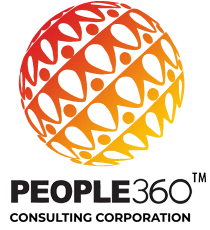The 3rd Week of January is National #Cancer Consciousness Week.
What is Cancer?
Cancer is a group of many related diseases that begins in cells. Normally, cells grow and divide to produce more cells only when the body needs them. This orderly process helps keep the body healthy. Sometimes, however, cells keep dividing even if new cells are not needed. These extra cells form a mass of tissue, usually called a lump, swelling, or tumor.
Tumors can be classified as: benign tumors, which are not cancerous, can often be removed, and in most cases, do not come back; and malignant tumors which are cancerous. Cells in the latter tumors are abnormal; these can divide without control, and invade and damage nearby tissues and organs.
CAUSE
A result of a complex mix of factors related to heredity, diet, physical inactivity, and prolonged, continuous exposure to certain chemicals and other substances.
A number of factors that increase a person’s chance of developing cancer has been identified and are called “risk factors”:
- Cigarette Smoking. Smoking causes lung cancer. Smokers are more likely to develop lung cancer compared with non-smokers. Smoking has also been linked to cancers of the mouth, larynx, pharynx, esophagus, pancreas, and bladder.
- Excessive Alcohol Intake. Heavy drinkers have an increased risk of cancers of the mouth, throat, esophagus, larynx, and liver. Some studies suggest that even moderate drinking may slightly increase the risk of breast cancer.
- Unhealthy Diet. Diet plays an important role in the development of many cancers, particularly in the digestive and reproductive organs. Long-term habit of not eating a healthy diet has been linked with increased incidence of cancer. Likewise, being seriously overweight has been linked to breast cancer.
- Chemicals and Other Substances. Exposure to substances, such as chemicals, metals, or pesticides can increase the risk of cancer. Asbestos, nickel, cadmium, uranium, radon, vinyl chloride, and benzene are well-known cancer-causing agents (carcinogens). These may act alone or together with other carcinogens, like cigarette smoke, to increase the risk of cancer.
- Second hand Smoke. Second hand smoke is the smoke emitted from the burning end of heated tobacco products usually in combination with the smoke exhaled by the smoker.
SIGNS & SYMPTONS
General signs of cancer (Signs and symptoms are specific for each type of cancer.):
- Fatigue
- Unexplained weight loss
- Fever
- Weakness
- Pain
- Skin changes (itching, excessive hair growth, redness, jaundice, and hyper-pigmentation)
TREATMENT
Treatment is specific for each type of cancer.
PREVENTION
There is no 100% guarantee that cancer can ever be prevented. However, being aware of the cancer risk factors will help reduce the possibility of cancer.
To lessen the risk of developing cancer:
- Quit smoking.
- Limit drinking alcoholic beverages.
- Watch your diet.
- Consult your doctor regularly.
- Do regular physical activity.
- Have yourself immunized (Hepatitis B vaccine at birth up to 6 months old for prevention of liver cancer, and human papillomavirus vaccine for the prevention of cervical cancer among women).
Source: https://www.facebook.com/OfficialDOHgov/photos/a.157979910879936/964617120216207/?type=1&theater


